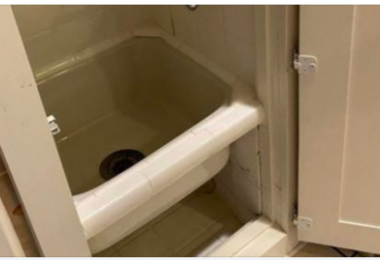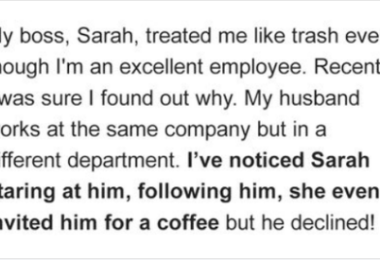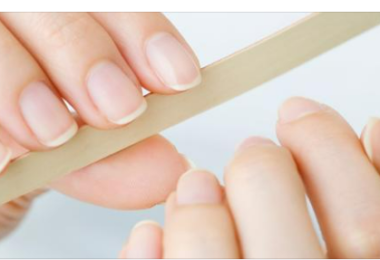Most individuals agree that education is crucial, particularly for young people. Despite holding such a prominent position, teachers are often underpaid and overworked.
Many people who begin the industry are excited and motivated by the prospect of teaching the future generation, but many eventually become disillusioned and burned out. They suffer with a range of problems, and some of them blame specific things for their burnout. On the other hand, complaints are often directed against the parents of the pupils.
Since it was printed in a newspaper in 2017, a retired teacher’s opinion post on her grievances with the classroom has gained a lot of attention online. The article’s veracity appears to be supported by a large number of struggling instructors today.
“The issue is with the parents”
This letter, written by Lisa Roberson and published in the Augusta Chronicle, continues to fuel discussion on who is more to blame for the problems in the educational system: parents or teachers. Roberson’s article might be even more relevant in light of the pandemic, online learning, and kids who are not used to a traditional classroom environment.
“As a retired educator, I am tired of people making decisions about how to improve our educational system who have never taught in a classroom or who have no knowledge of public education,” she says. “The issue is not with the teachers! The issue lies with the parents!
She says that parents are not putting their children in a learning environment. “They’re not even imparting basic social skills, like how to get along with people, or simply politeness or respect to their kids. The kids don’t have a pencil or paper when they arrive to school in shoes that cost more than the teacher’s whole wardrobe. Who supplies them? She mentioned how teachers frequently pay for them out of their own pockets, referring to the fact that they must utilize their own funds to furnish and furnish their classrooms. “Look at the parents and students in schools that are ‘failing,'” says the author. Attendance at parent nights by parents? Do they routinely communicate with the teachers?
She inquires as to whether parents make sure their kids complete their homework on a regular basis and arrive at school prepared. “Do the students pay attention in class, or do they cause disruptions?” Looking at these variables will show that parents are the ones who are failing, not the schools,” she says. “Parents’ and teachers’ jobs cannot be done by one another. Nothing will improve until parents take charge and carry out their responsibilities.
The Link Between Parents and Teachers
In an ideal world, parents and educators would work together amicably. However, it is not how the real world is; especially not in the wake of the pandemic. Lockdowns forced parents to keep a closer eye on their kids’ schooling.
Additionally, it sparked a plethora of long-lasting discussions concerning divisive political subjects such as school closures, race theory, gender identity, vaccination policy, and masks.
All things considered, though, parents and teachers have the same objective: providing children with a strong education that will help them succeed in the future. Teachers need to transfer this information to their pupils, which can include developing creative ways to engage and inspire them. Before putting their children in school, parents must also make sure they have the abilities needed for the best learning outcomes.
This can include instructing kids on how to follow rules in the classroom, finish their homework, arrive on time, and other things.
For a variety of circumstances, parents might not be able to actively participate in their children’s education. However, overbearing parents can be just as problematic, if not more so.
According to certified school psychologist Scott A. Roth, PsyD, of New Jersey, “helicopter parenting could be more impactful on the issues that we are seeing today, but ghost parenting may be affecting a certain subset of students.”
Many of our kids have never been allowed to experience disappointment or annoyance because their parents always step in to keep it from happening. A child may come to doubt their ability to solve difficulties on their own as a result of this.
Thus, managing the parent-teacher interaction is more challenging than it has ever been. Some students dropped far behind their peers throughout the outbreak. The widespread shortage of educators is making it more difficult for those who stay in the classroom to avoid burnout and exhaustion. Many contend that children’s conduct has gotten worse after the epidemic, rendering pre-pandemic routines and approaches useless.
There were several disruptions to the schedules of teachers, students, and their families. It is quite difficult for young minds to understand that routines at home were disturbed, even in states where school closures were not extended, according to Brandi David, MEd, a Florida-based K–8 educator with a focus on mathematics and development editor for Hand2Mind.
“Connections are important”
Maybe parents and educators can agree that schools need to change to keep up with the times. Curricula, schedules, and the like have not yet addressed the modern world and its unique issues.
Patricia A. Edwards, Ph.D., a prominent professor at Michigan State University who specializes in promoting literacy learning and development for families of color, believes that schools need to improve in areas like equity, teaching life skills, technology integration, and other areas.
“A lot of education reform initiatives are underway in response to these criticisms, with a focus on curriculum modernization, personalized learning, increased use of technology, and a move away from standardized testing,” according to Dr. Edwards. “The goal of these adjustments is to better match K–12 education to the evolving needs of the modern world.”
To maximize children’s education, parents and teachers must collaborate in the interim. Establishing a cooperative relationship with the parents is the most effective approach to hold pupils accountable for their actions, according to David. “..If their strategies—such as creating a quiet area, teaching breathing exercises, and providing opportunities for behavior correction—are effective, teachers ought to let parents know about them.
Dr. Roth continues, “Relationships matter. Students who feel safe and cared for study better. There are far less behavioral issues in the classrooms of teachers who can build a relationship with their kids.








Leave a Comment